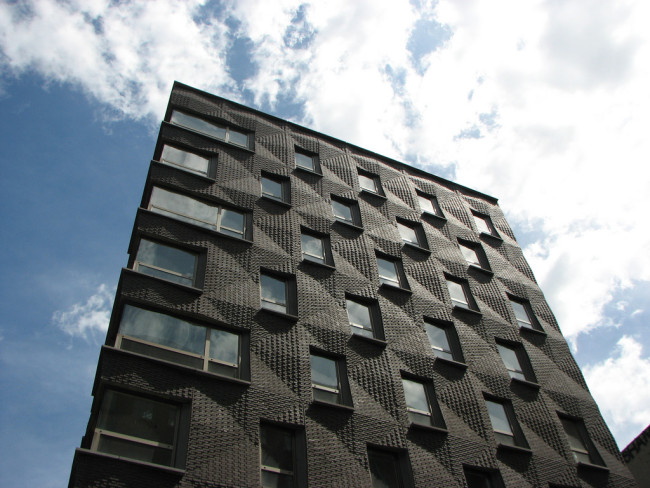What we can learn from this West Village lawsuit over a nightmare neighbor
You may get annoyed at your neighbor's barking dog or occasional late-night guests, but it could be a whole lot worse. A West Village man has filed a lawsuit in response to his belligerent downstairs neighbor, who files false noise complaints, constantly bangs the ceilings with the broom, and screams obscenities at him, according to a recently filed Manhattan lawsuit.
As the New York Post reports, Kyle Cameron has alleged that his Christopher Street co-op board has ignored his complaints about a downstairs neighbor for two years, and, per the suit, "has been unable to feel safe within, and/or quietly use and enjoy his home."
The resident in question has allegedly called the police with noise complaints when Cameron wasn't even home, and at another point, "screamed at the top of his lungs, 'You don't think I know your story? I know your story you f—king c—ksucker." (For what it's worth, the downstairs neighbor's lawyer says these claims are untrue.)
Either way, Cameron is seeking to have the co-op evict his neighbor, and to be paid $750,000 in damages for his trouble.
And though we don't know the particulars of this case (for instance, if Cameron kept records of the problems, or when and how he alerted the board), this does highlight what is supposed to be one of the major upsides to living in a co-op: Unlike condos, co-op boards have the power to evict out-of-line neighbors.
The eviction process in a co-op is what's known as a "Pullman action" (we've got a full outline of how they work here), and it can be a fairly complex legal procedure. Even poorly behaved shareholders need to be informed in advance, and given a chance to correct the problem, among other things.
If you find yourself with a similar neighbor issue in your building, the first course of action is to document everything—record any incidents if possible, and write down dates, times, and descriptions of any incident. You should also be communicating with the board in writing, to make the issue clear—and have a paper trail.
And in the case of a neighbor who's going so far as to make erroneous complaints to the police (an issue we've heard about before, believe it or not), you may be dealing with a mental health issue. In which case, it might be worth you or the board contacting an agency such as Adult Protect Services, or contacting the shareholder's family to make them aware of the problem if at all possible.
One last way to protect yourself: Call your local precinct to let them know about the issue, so that you have contacts in the department who can hopefully help to mitigate the problem if your neighbor calls the police again.
You Might Also Like


























